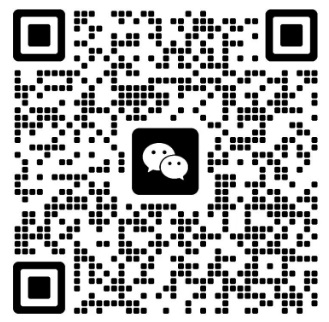定语从句在句中作定语,修饰一个名词或代词,被修饰的名词、词组
时;
(3)先行词有形容词最高级和序数词修饰时;
(4)先行词既有人又有物时;
(5)先行词被 the only, the very, the same, the last, the best 修饰时;
(6)句中已经有 who 或 which,为了
或代词即先行词。定语从句通常出现在先行词之后,由关系词(关系
代词或关系副词)引出。
关系代词有:who, whom, whose, that, which, as 等。
关系副词有:when, where, why 等。
一、定语从句的关系词
(一)关系代词引导的定语从句
1. who, whom, that 这些词代替的先行词是人的名词或代词,在从句
中可做主语、宾语等。
He is the man (who/whom/that) I saw yesterday(. who/whom/that 在从句
中作宾语,可省)
2. which, that 所代替的先行词是事物的名词或代词,在从句中可做
主语、宾语等。
A prosperity which/that had never been seen before appeared in the
countryside.(which/that 在从句中作主语)
3. Whose 用来指人或物(指用做定语)
They rushed over to help the man whose car had broken down.
4. as
(1)与 such, the same, as 连用,意为“想......一样的, 同.....一类的”
(2)单独用作关系代词,意为“正如”,可放在主句之前,之后或中
间,且主从句之间一般要用逗号隔开。
代词或关系副词)引出。
关系代词有:who, whom, whose, that, which, as 等。
关系副词有:when, where, why 等。
一、定语从句的关系词
(一)关系代词引导的定语从句
1. who, whom, that 这些词代替的先行词是人的名词或代词,在从句
中可做主语、宾语等。
He is the man (who/whom/that) I saw yesterday(. who/whom/that 在从句
中作宾语,可省)
2. which, that 所代替的先行词是事物的名词或代词,在从句中可做
主语、宾语等。
A prosperity which/that had never been seen before appeared in the
countryside.(which/that 在从句中作主语)
3. Whose 用来指人或物(指用做定语)
They rushed over to help the man whose car had broken down.
4. as
(1)与 such, the same, as 连用,意为“想......一样的, 同.....一类的”
(2)单独用作关系代词,意为“正如”,可放在主句之前,之后或中
间,且主从句之间一般要用逗号隔开。
As we know, smoking is harmful to one’s health.(as 充当 know 的宾语)
(二)关系副词引导的定语从句
关系副词可代替的先行词是时间、地点或理由的名词,在从句中作状
语。
1. when, where, why
关系副词 when, where, why 的含义相当于“介词+which”结构,因此
常常和“介词+which”结构交替使用。
There are occasion when(on which) one must yield.
2. that 代替关系副词
在非正式文体中,that 可以用于表示时间、地点、方式、理由的名词
后取代 when, where,why 和“介词+which”引导定语从句,在口语中
that 常被省略。
His father died the year(that/when/in which) he was born.
(三)判断关系代词与关系副词
方法一:用关系代词,还是关系副词完全取决于从句中的谓语动词。
及物动词后面无宾语,就必须要求用关系代词;而不及物动词则要用
关系副词。
方法二:准确判断先行词在定语从句中的成分(主、谓、宾、定、状),
也能正确选择出关系代词/副词。
总结:关系词的选择依据在从句中所做的成分,先行词在从句中做主
语,定语,宾语时,选择关系代词(who, whom, that, which, whose);
先行词在从句中作状语时,应选择关系副词(where 地点状语, when
(二)关系副词引导的定语从句
关系副词可代替的先行词是时间、地点或理由的名词,在从句中作状
语。
1. when, where, why
关系副词 when, where, why 的含义相当于“介词+which”结构,因此
常常和“介词+which”结构交替使用。
There are occasion when(on which) one must yield.
2. that 代替关系副词
在非正式文体中,that 可以用于表示时间、地点、方式、理由的名词
后取代 when, where,why 和“介词+which”引导定语从句,在口语中
that 常被省略。
His father died the year(that/when/in which) he was born.
(三)判断关系代词与关系副词
方法一:用关系代词,还是关系副词完全取决于从句中的谓语动词。
及物动词后面无宾语,就必须要求用关系代词;而不及物动词则要用
关系副词。
方法二:准确判断先行词在定语从句中的成分(主、谓、宾、定、状),
也能正确选择出关系代词/副词。
总结:关系词的选择依据在从句中所做的成分,先行词在从句中做主
语,定语,宾语时,选择关系代词(who, whom, that, which, whose);
先行词在从句中作状语时,应选择关系副词(where 地点状语, when
时间状语,why 原因状语)。
二、注意要点
(一)先行词和关系词二合一
what=the thing which
which=all that
whatever=anything that
who=the person that
whoever=anyone who
What you want has been sent here.(what 可以用 the thing which 代替)
Whatever you want makes no difference to me.(whatever 可以用
anything that 代替)
(二)关系代词 that 与 which 的用法区别
1. 只能用 which 的情况:
(1)在引导非限制性定语从句时
The tree, that is four hundred years old, is very famous here(误)
The tree, which is four hundred years old, is very famous here(正)
(2)介词后不能用 that
We depend on the land from which we get our food.
We depend on the land that/which we get our food from.
2. 只能用 that 作为定语从句关系代词的情况:
(1)先行词为 all, everything, anything, nothing, little, much 等不定代
词时;
(2)先行词被 all,any, every, each, much, little, no, some, few 等修饰二、注意要点
(一)先行词和关系词二合一
what=the thing which
which=all that
whatever=anything that
who=the person that
whoever=anyone who
What you want has been sent here.(what 可以用 the thing which 代替)
Whatever you want makes no difference to me.(whatever 可以用
anything that 代替)
(二)关系代词 that 与 which 的用法区别
1. 只能用 which 的情况:
(1)在引导非限制性定语从句时
The tree, that is four hundred years old, is very famous here(误)
The tree, which is four hundred years old, is very famous here(正)
(2)介词后不能用 that
We depend on the land from which we get our food.
We depend on the land that/which we get our food from.
2. 只能用 that 作为定语从句关系代词的情况:
(1)先行词为 all, everything, anything, nothing, little, much 等不定代
词时;
时;
(3)先行词有形容词最高级和序数词修饰时;
(4)先行词既有人又有物时;
(5)先行词被 the only, the very, the same, the last, the best 修饰时;
(6)句中已经有 who 或 which,为了










